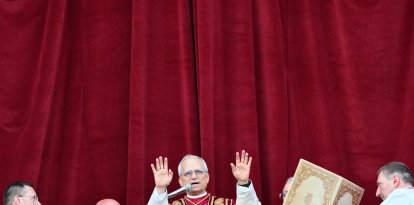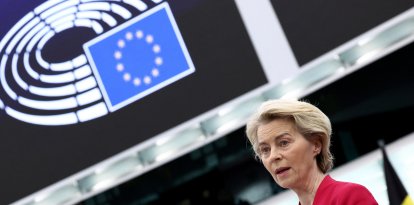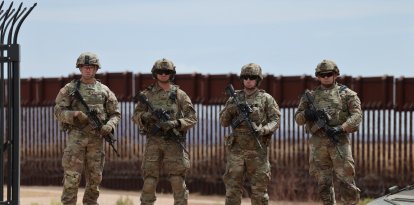Here's what the Supreme Court's landmark decision on presidential immunity really means
President Biden and the Democrats claim that the justices have granted presidents the ability to act without any limits. Such a claim is an outright lie.

(Photo by Drew ANGERER / AFP)
It is true that the landmark decision issued today by the Supreme Court on presidential immunity is a victory for former President Trump. But, fundamentally, it is a decision about the institution of the presidency. What the Court has made clear on this historic day is that a president cannot be prosecuted for exercising his basic constitutional powers.
The justices understand that with this decision they are creating a precedent. To a large extent, the fury that has been unleashed on the left comes from the fact that they are hastily assuming that this is a decision to benefit Trump. The reality is that this case will be analyzed and studied in universities for years to come, the judges have created a precedent and, while this benefits Trump, in reality the decision is a defense of the presidential institution and the separation of powers. It is a protection that will cover all future presidents and of course it could also benefit President Joe Biden, but fundamentally it benefits the country.
The Court has made it clear that a president must have the ability to perform his constitutional duties without the threat of future prosecution for doing his job. The goal then is to protect presidents so that they do their job in the right way and can make difficult decisions with the good of the country in mind and not under the pressure that they may later be prosecuted for their official acts.
That is why the Court states that a president must enjoy immunity so as to “execute the duties of his office fearlessly and fairly.” The Court also states that a president “may not be prosecuted for exercising his core constitutional powers, and he is entitled, at a minimum, to a presumptive immunity from prosecution for all his official acts.” Another key issue noted by the Court is that if a president is criminally prosecuted for doing his job, that would constitute a violation of the separation of powers and would be taking away the president's executive authority.
Former President Trump's legal team has even cited Biden's immigration policy to exemplify how presidential immunity should protect presidents and give them the freedom to act as they see fit. There are those who believe that President Biden could be indicted for endangering the country and for possibly breaking some laws by allowing millions of immigrants to enter. Presidential immunity, upheld by the Court in this decision, protects President Biden from being indicted in the future for his immigration policy.
Accusations that this decision would allow presidents to commit crimes such as using the military to assassinate someone for simply being a political opponent are without merit. What the Court has said, and what has always been considered related to presidential immunity, are the official duties of the president. Of course, assassinating a political opponent is not part of the official duties of the presidency.
A president has a duty to protect the country from international enemies, also to use the justice system to protect society from criminals, but he has no authority to assassinate people. That has not changed and the Court has not said otherwise. The justices clearly state that immunity is for official actions.
President Biden has added to these alarmist and unsubstantiated statements by saying in his speech that the Court's decision means there are virtually no limits to what a president can do. Such a claim is totally false. The Court has decided to protect the presidential institution from making justice "political" and to protect presidents so that they can do their job in the best possible way and without feeling pressured.

























